Search Images
Browse Content (p. 1407)

Image
The Arringatore (Orator)
The lifesize bronze Etruscan statue from Arretium (Arezzo) known as the Arringatore or 'Orator'. 1st century BCE. (Archaeological Museum of Florence, Italy)
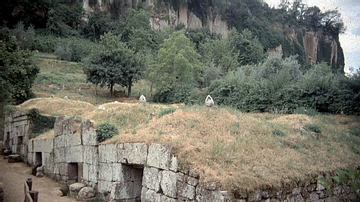
Image
Etruscan Tombs, Volsinii
Etruscan tombs at Volsinii (Orvieto). 6th-5th century BCE. Many of the tombs have an inscription above the single doorway indicating the name of the principal occupant.

Image
Mars of Todi
The bronze statue known as the Mars of Todi. Etruscan, probably from Volsinii (Orvieto). 4th century BCE. Height: 1.42 m (Vatican Museums, Rome)
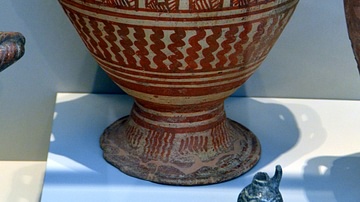
Image
Etruscan Red on White Pottery Vessel
An Etruscan red on white slip pottery vessel from Vulci or Bisencio, c. 700 BCE. (Antikensammlung Berlin)
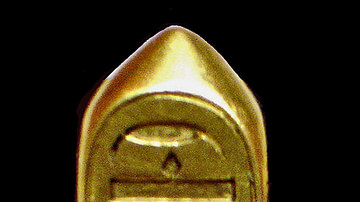
Image
Ring of Ahhotep
Gold ring of Ahhotep (c. 1570-1530 BCE), mother of Egyptian pharaoh Ahmose I, who held the title of God's Wife of Amun.
Louvre Museum, Paris.
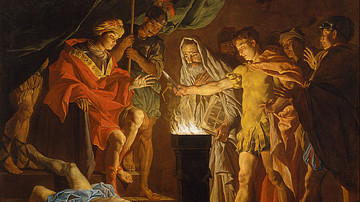
Image
Lars Porsenna & Mucius Scaevola
A 17th century CE oil painting by Matthias Stomer depicting the legendary Etruscan king of Chiusi Lars Porsenna and the Roman hero Mucius Scaevola. Porsenna attacked Rome c. 508 BCE and the captured Mucius put his hand in a fire to prove...

Image
Rape of Lucretia
The Rape of Lucretia by Titian (1490-1576 CE). Lucretia was raped by Sextus, son of the Roman king Lucius Tarquinius Superbus. The incident, according to legend, brought about the downfall of the monarchy and the beginning of the Roman republic...
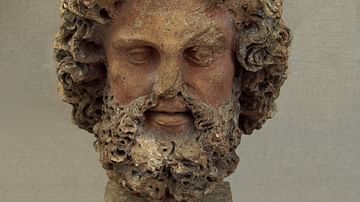
Image
Tin
A terracotta bust of the Etruscan god Tin/Tinia, head of the pantheon and equivalent to Zeus/Jupiter. 300-250 BCE. (Staatliche Antikensammlungen, Munich)
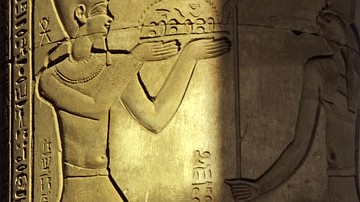
Image
Ptolemy XIII in the Temple at Kom Ombo
A relief of Ptolemy XIII Theos Philopator on one of the pillars in the courtyard of the Temple at Kom Ombo.
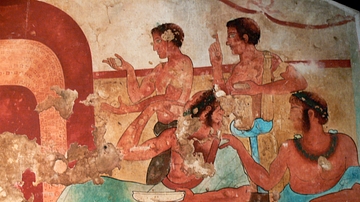
Image
Etruscan Diners, Tarquinia
A detail of a wall painting in the Etruscan Tomb of the Funerary Bed at Tarquinia. The two men are dining, as indicated by their low one-armed chairs. c. 460 BCE.